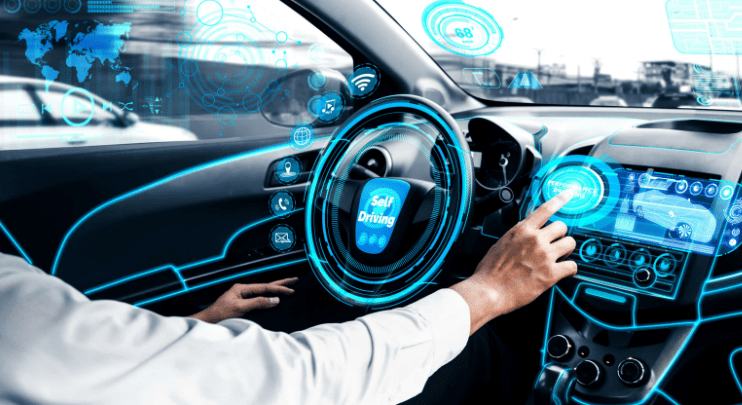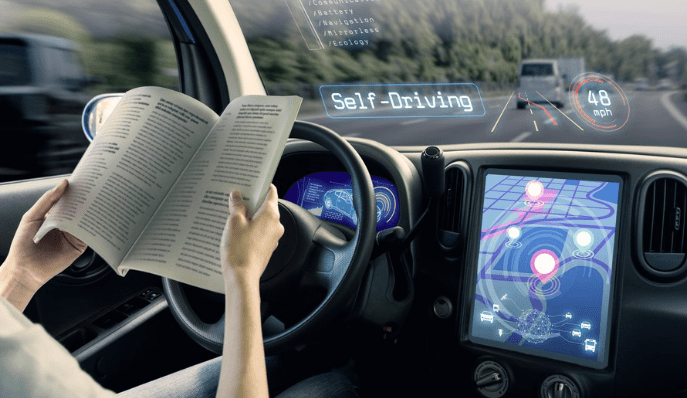Self Driving Cars Pros and Cons– Rapid advancements in technology have paved the way for the emergence of self-driving cars, also known as autonomous vehicles. These vehicles rely on artificial intelligence (AI) systems and a network of sensors to navigate roads without human intervention. While the concept of self-driving cars holds great promise for revolutionizing transportation, it also raises numerous concerns.
Self-driving cars have been a hot topic in the automobile industry in recent years. While many people are excited about the prospect of a future where cars can drive themselves, others are skeptical and even fearful. With technology advancing at an unprecedented rate, it can be challenging for consumers to keep up with the latest developments and understand the pros and cons of self-driving cars. In this blog post, we will provide you with a comprehensive guide to the benefits and drawbacks of self-driving cars.
Self Driving Cars Pros and Cons
Here we will explore the pros and cons of self driving cars to gain a balanced understanding of their potential impact on society.
Pros of Self-Driving Cars

1. Increased safety:
One of the main advantages of self-driving cars is increased safety. Self-driving cars have the potential to reduce human error, which is responsible for the majority of car accidents. By replacing human drivers with computer systems, many experts believe that the number of accidents will decline considerably.
Human error is responsible for the majority of road accidents, but autonomous vehicles have the potential to minimize such incidents. With advanced sensors and AI algorithms, self-driving cars can react faster and more accurately to potential hazards, reducing the likelihood of accidents caused by human factors such as fatigue, distraction, or impaired driving.
2. Improved traffic flow:
Self-driving cars could help reduce traffic congestion by improving traffic flow. Computer systems can communicate with one another in real time and automatically adjust speed and direction to prevent traffic jams.
3. Greater Accessibility:
Self-driving cars could provide greater mobility to people who are unable to operate a car due to physical limitations or disabilities. Self-driving cars could also provide a new form of public transportation, allowing people without cars to get around more easily.
4. Improved Productivity and Comfort:
By eliminating the need for human drivers, self-driving cars free up passengers’ time during commutes. Passengers can utilize this time for work, leisure, or relaxation, thus increasing productivity and reducing stress. Moreover, autonomous vehicles can be designed to provide a more comfortable and enjoyable travel experience, incorporating features such as personalized entertainment systems and adaptive seating.
Cons of Self Driving Cars
Now let’s take a look at some drawbacks of self driving cars in 2023:
1. Dependence on Technology:
Self-driving cars rely heavily on computer systems, sensors, and other technology. If any of these systems malfunction, accidents could occur. As a result, some people are hesitant to rely on self-driving cars.
2. Job loss:
Self-driving cars could lead to job losses in the transportation industry. Drivers of taxis, buses, and trucks may no longer be needed if vehicles become fully autonomous.
3. Data privacy concerns:
Self-driving cars collect large amounts of data, including routes, locations, and personal information about passengers. This data could be valuable to marketing firms, potentially violating passengers’ privacy rights.
Autonomous vehicles heavily rely on complex software systems and connectivity. This dependency exposes them to potential cyberattacks, which could jeopardize the safety and privacy of passengers. Safeguarding self-driving cars from hackers and ensuring the security of the communication networks they rely on are critical concerns that must be addressed to prevent malicious activities.
4. Ethical concerns:
There are ethical concerns surrounding self-driving cars. For example, how should the car determine who to save in the event of an unavoidable accident? Should it prioritize the safety of passengers, other drivers, and pedestrians?
Self-driving cars raise ethical questions related to decision-making in critical situations. For instance, in unavoidable accidents, the AI system of an autonomous vehicle may need to make split-second decisions about protecting passengers versus minimizing harm to others. Resolving these ethical dilemmas poses significant challenges and requires careful consideration of human values and legal frameworks.
Conclusion:
There are clear self driving cars pros and cons that we can consider while checking when thinking about an autonomous car. While increased safety and improved traffic flow are major advantages, concerns about job loss, data privacy, and ethical issues must be addressed. As technology continues to evolve, it is important for consumers to stay informed and weigh the benefits and drawbacks before making any decisions about self-driving cars. Ultimately, the decision about whether to embrace this technology or not rests in the hands of individuals, who need to determine what is best for themselves and their communities.
FAQs
What are the negatives of self-driving cars?
Concerns about self-driving cars include safety, technology, autonomy, and social implications.
Autonomous vehicles face the challenge of navigating a complex world, filled with diverse roadways, street signs, pedestrians, vehicles, buildings, and more. Human behavior, as we all know, is highly unpredictable. Therefore, these vehicles must possess the ability to not only comprehend their driver but also anticipate and predict human actions.
What are the pros of self-driving cars?
Utilizing a self-driving car offers a substantial advantage: a dramatic reduction in traffic accidents. Remarkably, over 90% of all accidents result from various degrees of human error, including distractions, impaired driving, and subpar decision-making.
Are driverless cars a good idea?
According to numerous experts, self-driving cars have the potential to surpass human drivers in terms of safety. Equipped with advanced sensors and cameras, these vehicles not only perceive their surroundings but also possess the ability to anticipate future events—something beyond human capabilities.
Are self-driving cars legal in the US?
Currently, 21 states have legislation permitting the use of autonomous vehicles, while six states have specific laws applicable to semi trucks. In addition, 13 states and Washington D.C. are actively researching regulations for these innovative vehicles.


5 thoughts on “The Pros and Cons of Self-Driving Cars: A Comprehensive Guide for Consumers”